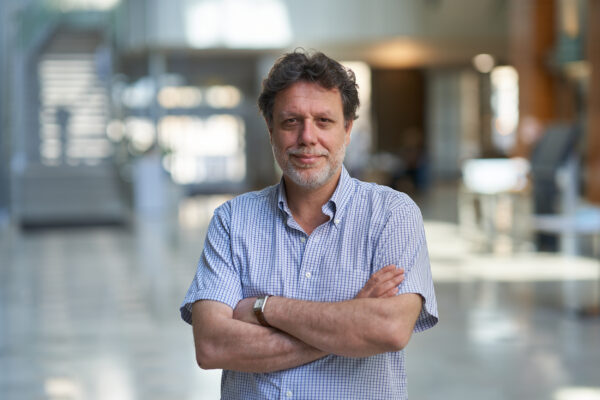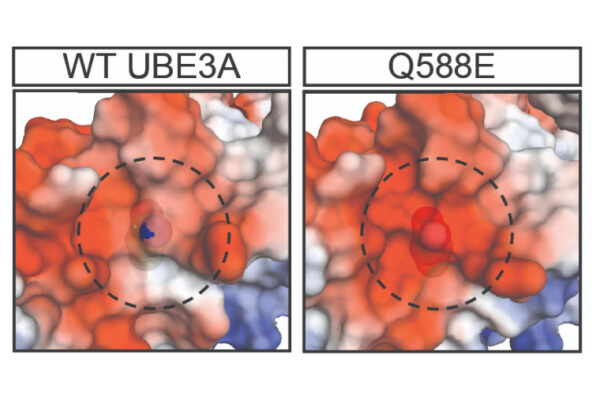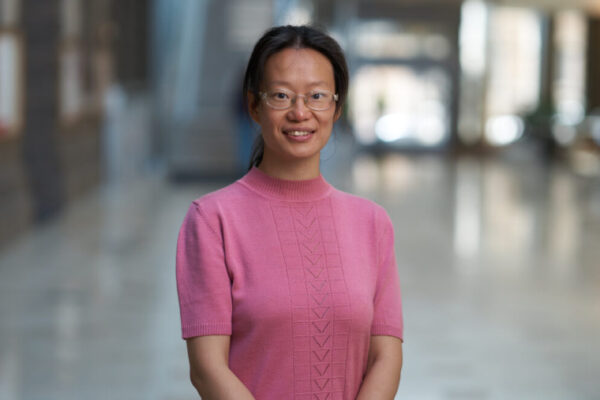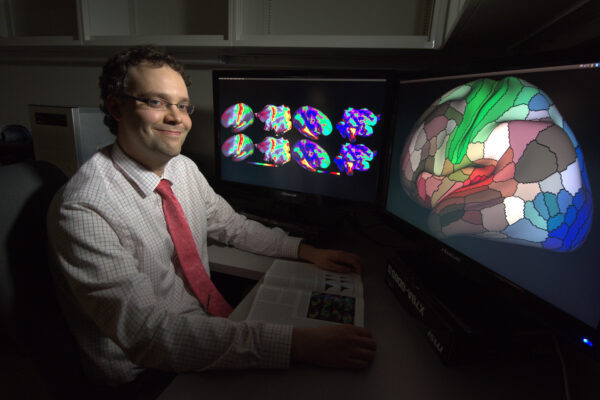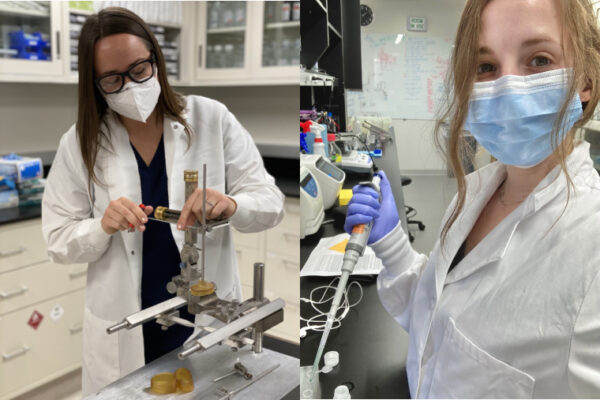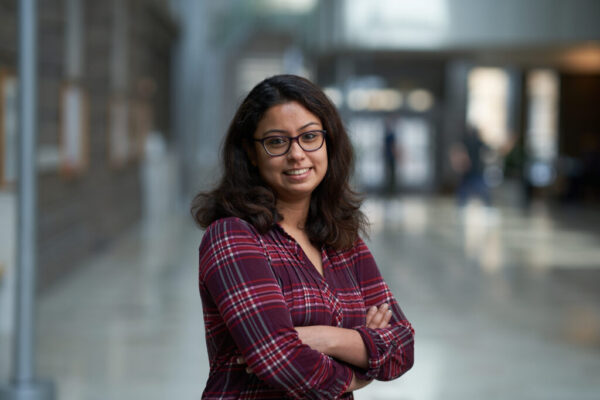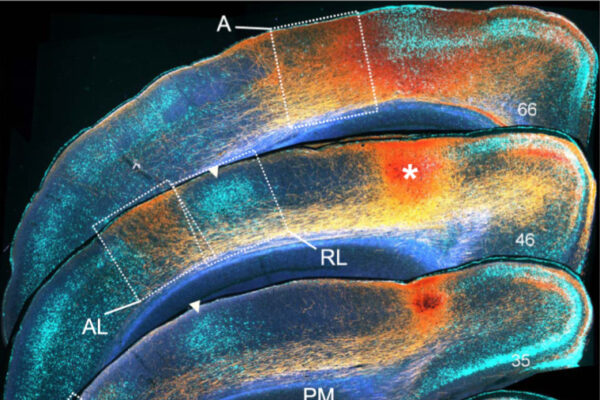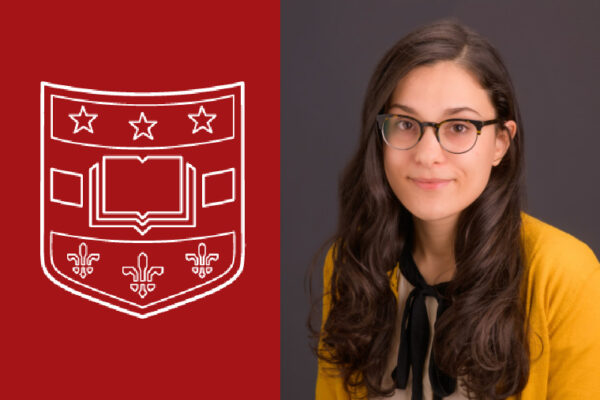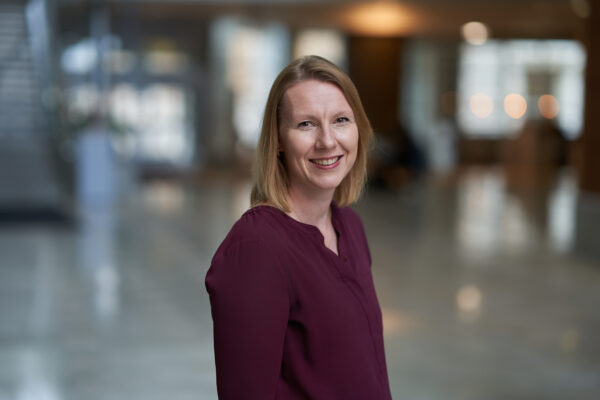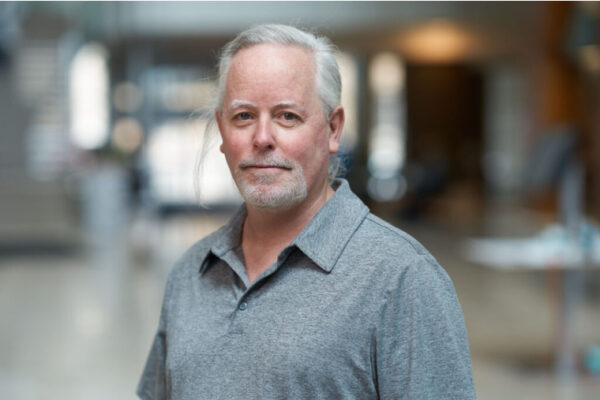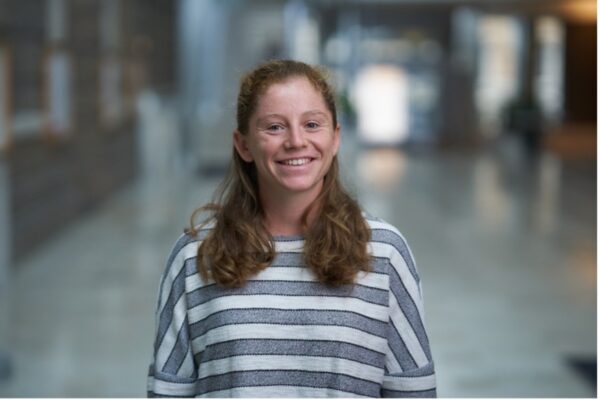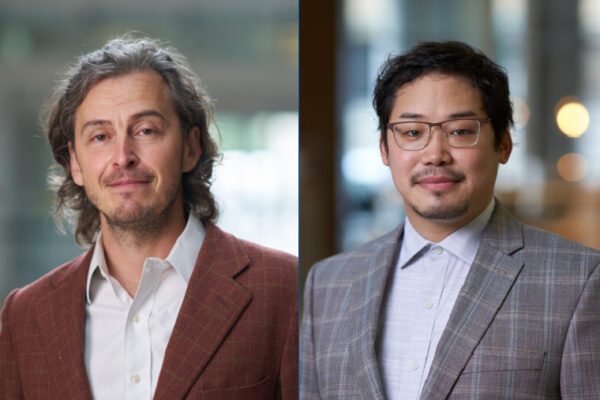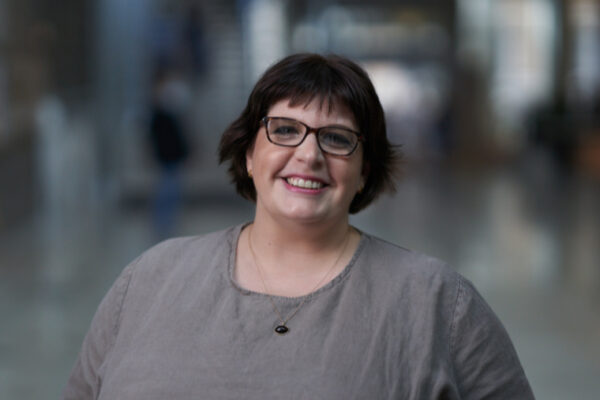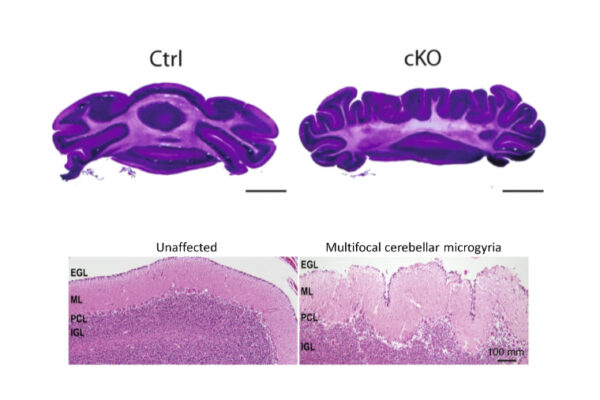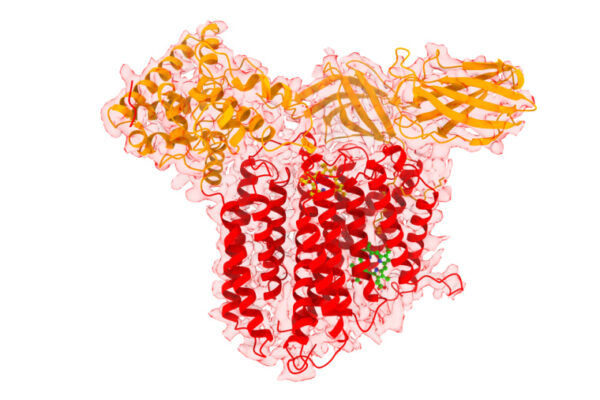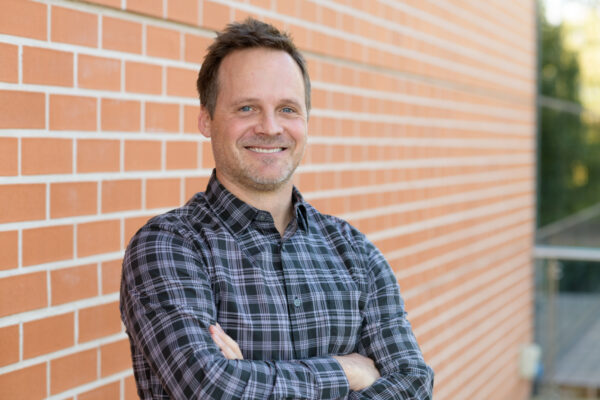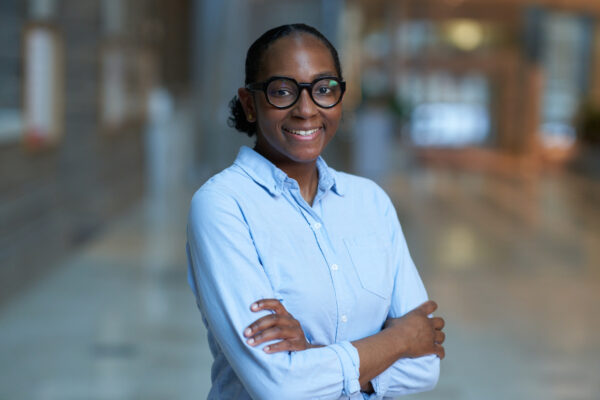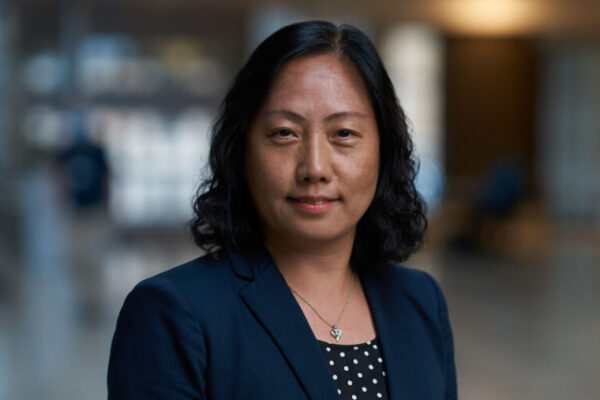Learn about the latest news and events going on in the department. You can also follow us on Twitter (@WUSTLneurosci).
New primer on logistic models for research in decision neuroscience
Camillo Padoa-Schioppa, PhD, has developed a manual of tools for analysis of economic choices.
Yi lab develops assay to solve mystery genetic variants
Assistant Professor Jason Yi’s group applied the technique to variants of unknown significance in UBE3A, the gene that underlies Angelman syndrome.
Yao Chen, PhD, receives grant from Mathers Foundation
The $500,000 award will go toward studying cellular influences on neuromodulator function.
Neuroanatomist: A profile of Matt Glasser, MD, PhD
As a graduate student in the Department of Neuroscience, Glasser came to be a leader in the Human Connectome Project.
The Department of Neuroscience Celebrates Tech Week
Our laboratory animal technicians are the backbone of basic research that relies on animal models.
Mohini Sengupta wins Mightex Research Excellence Award
Sengupta, a postdoc in Martha Bagnall’s lab, earned third place for illuminating the connectivity of spinal interneurons in zebrafish.
New study shows hierarchical and nonhierarchical network architectures between areas of mouse visual cortex
The Burkhalter lab finds that areas are embedded within a hierarchical network in which image fragments from the retina are sent through bottom-up pathways to extract percepts, and top-down pathways from higher to lower areas provide prior knowledge for interpreting the visual scene.
Assistant Professor Kristen Prufrock joins the Department of Neuroscience
Prufrock studies the anatomy of the chewing system in mammals and is regarded for her excellence in teaching.
Amy Bauernfeind appointed vice chair for education
Bauernfeind, an associate professor in the Department of Neuroscience, is the first to hold the position for the department.
Enhanced sleep improves learning and memory in flies with learning deficits
Paul Shaw’s lab demonstrates that sleep induction in fruit flies otherwise unable to perform learning and memory tasks rescues their behavioral performance.
Student of sleep: A profile of Lizzie Tilden
The MSTP student brings her background in systems neuroscience to the cutting-edge molecular biology expertise of Yao Chen’s laboratory.
Study identifies brain area that controls novelty seeking
Monosov lab demonstrates that neurons in the zona incerta are responsible for the motivation to seek novelty.
Ashley Morhardt elected to the Academy of Educators
Morhardt, assistant professor in the Department of Neuroscience, brings a passion for comparative neuroanatomy and public outreach to teaching medical students.
Collaborative team investigates protein that underlies CHARGE syndrome
The researchers find that loss of the CHD7 protein in mice lead to changes in gene regulation and abnormal brain folds, indicating possible mechanisms for the rare neurodevelopmental disorder.
A pathway emerges (Links to an external site)
Researchers including James Fitzpatrick and Michael Rau of WUCCI and the Department of Neuroscience describe the structure and function of a heme transport and assembly machine called CcsBA.
Neuroscience philosopher: A profile of David Kaplan, PhD
The cognitive neuroscientist at Macquarie University got his first wet lab experience as a postdoc at WashU, and now addresses those same questions about hand-eye coordination and sensory-motor integration in his research on surgeons’ skills.
Sabin Nettles receives SfN Next Generation Award
Nettles has led outreach efforts to bring neuroscience into St. Louis classrooms, all while making inroads into the biology of Rett Syndrome for her graduate research in Harrison Gabel’s lab.
Guoyan Zhao receives grant to investigate genetic variations in neurodegenerative diseases
The $7 million grant awarded to a team of collaborators is part of the NIH’s new Impact of Genomic Variation on Function Consortium.
